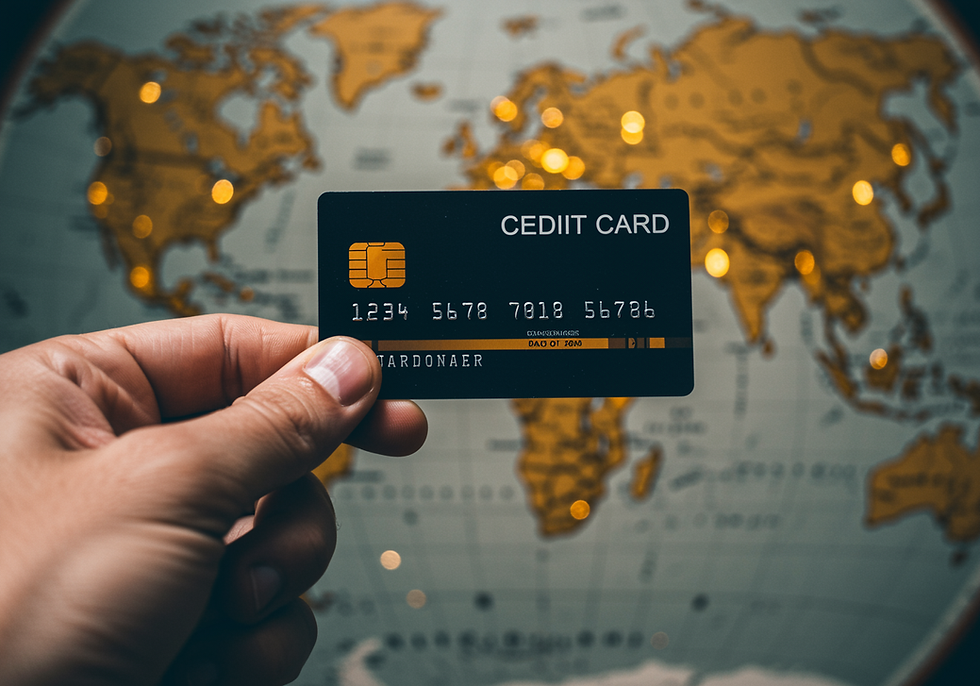How to Heal Your Money Trauma, According to Experts
- BY ELLE NKOSI

- Jul 12, 2025
- 5 min read

Money is not just a numbers game—it’s deeply emotional. Money trauma isn’t always about bankruptcy or poverty. It’s about what money represented—shame, control, fear, or inadequacy. According to a 2023 Bankrate report, over 52% of adults cite money as a leading source of mental health challenges, while others simply feel overwhelmed by financial decisions rooted in unhealed experiences. In South Africa, rising inflation and generational poverty make the emotional relationship with money even more complex.
The root of many people's financial struggles isn't just budgeting or debt—it’s unresolved money trauma. Whether it’s growing up in financial instability, experiencing job loss, or surviving economic abuse, money wounds run deep. And as experts emphasize, healing these traumas is essential for building lasting wealth and peace of mind.
What Is Money Trauma?
Money trauma refers to the emotional and psychological distress tied to financial experiences, particularly those shaped by fear, instability, shame, or scarcity. While it’s not yet a clinical diagnosis, experts in psychology and financial therapy widely recognize its impact.
“Money trauma is real,” says Bari Tessler, financial therapist and author of The Art of Money. “It affects the nervous system just like any other form of trauma—and it shows up in how we earn, spend, save, and relate to wealth.” Below are 6 ways to heal your money truama.
1. Understand Where Your Financial Trauma Originated
To heal, you have to identify the source. Did your parents fight over money? Were you forced to become the provider too early? Did you face job loss, economic abuse, or racial wealth inequality?
“People often replay their earliest financial experiences subconsciously,” explains Dr. Galit Atlas, psychoanalyst and author of Emotional Inheritance. “If your childhood was marked by financial chaos or scarcity, you might internalize beliefs like ‘I don’t deserve money’ or ‘Money always disappears.’”
6 Common Origins of Money Trauma:
Growing up in poverty or under constant financial stress
Economic abuse from a partner or family member
Experiencing financial collapse (job loss, foreclosure, debt)
Cultural or generational scarcity (“we don’t talk about money”)
Being a financial caretaker as a child (“parentified child”)
Financial instability due to race, gender, or socio-economic inequality
2. Name the Pattern: Are You Avoidant, Anxious, or Over-controlling?
Experts often categorize financial behaviors through an emotional lens. Understanding your "money style" can illuminate what you need to heal.
Avoidants ignore bills, refuse to open bank apps, or delay key decisions
Anxious types check their balances obsessively and worry about not having enough
Over-controllers hoard money, under-spend, and micromanage every cent
“You can’t change what you don’t acknowledge,” says Tori Dunlap, financial educator and founder of Her First 100K. “Labeling your pattern helps you meet it with compassion, not judgment.” Healing begins with awareness.
6 Symptoms of money trauma can manifest as:
Chronic under-earning or overspending
Fear of checking bank balances
Avoidance of financial conversations
Guilt around wealth or success
Compulsive saving or hoarding
Sabotaging financial growth
3. Reframe Your Financial Beliefs
Core beliefs like “I’ll never be good with money” or “Wealth is greedy” often stem from early exposure to financial instability or cultural conditioning. To break free, you must consciously rewrite these narratives.
“Limiting money beliefs aren’t just untrue—they’re inherited,” says Ken Honda, best-selling author of Happy Money. “We need to treat money like a relationship. When we heal our energy around it, money starts to flow more freely.”
Begin journaling your earliest money memories. What did you hear or feel about money in your household? What financial habits are you repeating today?
4. Seek Professional Help—Both Financial and Emotional
Just as you would work with a therapist to heal trauma, financial therapy is a growing field that bridges mental health and money management.
“Many of my clients come in thinking they need better budgeting tools,” says Lindsay Bryan-Podvin, a financial therapist and author. “What they often need first is to understand the emotional roots of their financial behavior.”
In South Africa and globally, platforms like the Financial Therapy Association and Therapists for Money offer access to professionals trained to address both the math and the mind.
5. Heal in Community—Shame Dies in Conversation
Money shame thrives in silence. Healing happens in community. Many people feel alone in their shame. But money anxiety is universal, sharing your experience creates relief and builds accountability.
4 Ways to Heal in Community:
Join financial healing groups.
Speak to a financial therapist
Attend "money circles" or workshops focused on financial self-worth
Partner with an accountability buddy for shared progress
6. Practice Nervous System Regulation Around Money
The body remembers money trauma—sweaty palms before bills, shutdown after a rejection. Healing must go beyond spreadsheets and into the body. Money anxiety activates the stress response—fight, flight, or freeze. This can lead to avoidance or impulsivity. Learning to regulate your nervous system helps you respond rather than react to financial decisions.
“Financial trauma activates your limbic brain. You can’t logic your way out of it—you must regulate it,” says Victoria Albina, somatic coach and trauma-informed practitioner.
Simple practices can rewire your relationship with money:
Place a hand on your chest and say: "I am safe to look at my money."
Use 4-7-8 breathing before checking balances.
Ground yourself by standing barefoot or squeezing a stress ball during financial tasks.
Take financial actions in small steps
7. Set Boundaries, Especially with Financial Dependents
Unhealed money trauma can result in unhealthy financial boundaries—like overgiving, codependency, or guilt-driven spending. Healing includes learning to say no, protect your financial goals, and separate your worth from your wallet. Financial boundaries are self-care, you can support others without sacrificing your own stability.
8. Redefine Financial Success on Your Terms
Capitalism often ties worth to productivity and wealth. Healing includes reimagining what money means for you—freedom, rest, impact and not just accumulation. “Decoupling your identity from your net worth is radical self-care,” says Chlöe B. McKenzie, founder of BlackFem and a leading voice in economic healing.
Create your own definition of wealth:
"Wealth means taking a sabbatical without panic."
"Wealth means caring for my family without martyrdom."
"Wealth means sleeping peacefully, not just owning a home."
9. Build Safety Through Financial Systems
he more structure you build around your finances, the less space there is for anxiety. After emotional healing, it's vital to put systems in place that support your new relationship with money. This includes:
Budgeting apps
Automating savings and debt payments
Creating an emergency fund—even R1 000 to start
Monthly "money dates" to review goals and progress
Set "safe spending limits" per week
Track emotional spending triggers and replace with regulation tools
10. Teach the Next Generation a New Narrative
Healing your money trauma is legacy work. Breaking cycles of scarcity, secrecy, and shame empowers the next generation to lead with agency, not anxiety.
“We pass on our money behaviors unconsciously,” says Dr. Joy Harden Bradford, licensed psychologist and founder of Therapy for Black Girls. “Healing means creating financial safety not just for you, but for your lineage.”
Final Thoughts: Healing Leads to Wealth
Unhealed money trauma will keep you stuck in cycles of scarcity, even as your income grows. But when you do the inner work—challenging your beliefs, processing your experiences, and building new systems—money becomes a tool for empowerment, not fear.
In a world where financial stress is at an all-time high, healing your money trauma is more than a personal breakthrough—it’s a revolutionary act. Your money story isn’t fixed, you can change the narrative, and in doing so, change your future.


























































